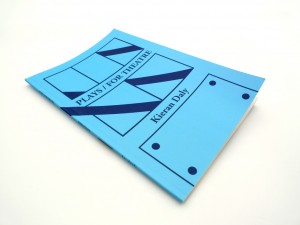MUTE FEMALE FINCHES: a satire by Stephen Ira

Dramatis Personae:
LOU SULLIVAN was a
gay trans activist
who passed away
in 1991
ANDREW SULLIVAN is an
English-born American author
editor and blogger
DAVID TOMLINSON was
best known as Mr. Banks
in Mary Poppins (1961)
Special Thanks:
George Michael
(Lights up on LOU SULLIVAN, alone, impassioned.)
LOU SULLIVAN:
I feel so unsure!
As I take your hand, and lead you to the dance floor.
(The smoke of dry ice is general.)
LOU SULLIVAN:
As the music dies! Something in your eyes!
calls to mind a silver screen
and all
its sad
goodbyes!
(Some smoke, stage left, clears, revealing ANDREW SULLIVAN, who is sitting down.)
ANDREW SULLIVAN:
It is possible to tell who has won a tennis contest not by watching the game, but by monitoring testosterone-filled saliva samples throughout.
LOU SULLIVAN:
So I’m never gonna dance again!
Guilty feet have got no rhythm!
Though it’s easy to pretend,
I know you’re not a fool!
ANDREW SULLIVAN:
I have always tended to bury or redirect my rage. I once thought this an inescapable part of my personality. It turns out I was wrong.
(LOU SULLIVAN is becoming visibly upset at these interruptions.)
ANDREW SULLIVAN: Other scientists theorizing that it was—
(LOU SULLIVAN retrieves a large net from a bag)
ANDREW SULLIVAN: —testosterone that enabled the male zebra finches to sing—
(LOU SULLIVAN creeping up on him)
ANDREW SULLIVAN: —injected mute female finches with testosterone—
(LOU SULLIVAN catches ANDREW SULLIVAN first try)
ANDREW SULLIVAN:
(Frustrated, from within the bag, but not to be silenced:)
Sure enough,
the females sang.
Plays/For Theatre by Kieran Daly
 Plays/For Theatre
Plays/For Theatre
by Kieran Daly
bas – books, 2011
44 pages / $10 Buy from bas – books
The genius of the plays in Plays/For Theatre is that they offer almost nothing of anything you’d expect from any kind of play. There are some precedents here in Stein and Beckett in their starkness and refusal, but Daly’s plays inhabit a kind of literalism that avoids both the wordplay of Stein and the ghostly psychodrama of Beckett’s shorter works, even Breath, in which the lights rise to the sound of an inhalation and lower to the sound of an exhalation.
Daly’s work is even more spare than that, usually absent of any kind of staging or even characters unless generic actors are referred to peripherally. What you get instead with Daly’s work is him stretching the form of the play so hard over content completely unsuited to drama that it eventually becomes tough to even read the plays as plays. They’re more like the cadavers of plays, taken out of cold storage for study by students not of the theatre but of a kind of literalism that would make even nouvelle roman writers blush.
Take, for example, the play Gender Trouble by Judith Butler: a Play in its entirety, lack of italics (sic):
ACT.
[Entire text of Gender Trouble by Judith Butler.]
SCENE.
Gender Trouble.
SCENE.
Gender Trouble by Judith Butler. Published 1990.
ACT.
The book Gender Trouble by Judith Butler.
And that’s all you get. The book is dramatized, but not by being reworked through character and setting, but simply by being placed as an object within the form of a play. Most of the plays in Plays/for Theatre behave this way; there are plays about corners, windows, A Thousand Plateaus, numbers, and Law and Order: Special Victims Unit (Season Five) among other things. And while Daly works subtle variations into his presentations, the forthright literalism remains intact. The play about a window is literally that and nothing else.
September 20th, 2013 / 11:00 am
